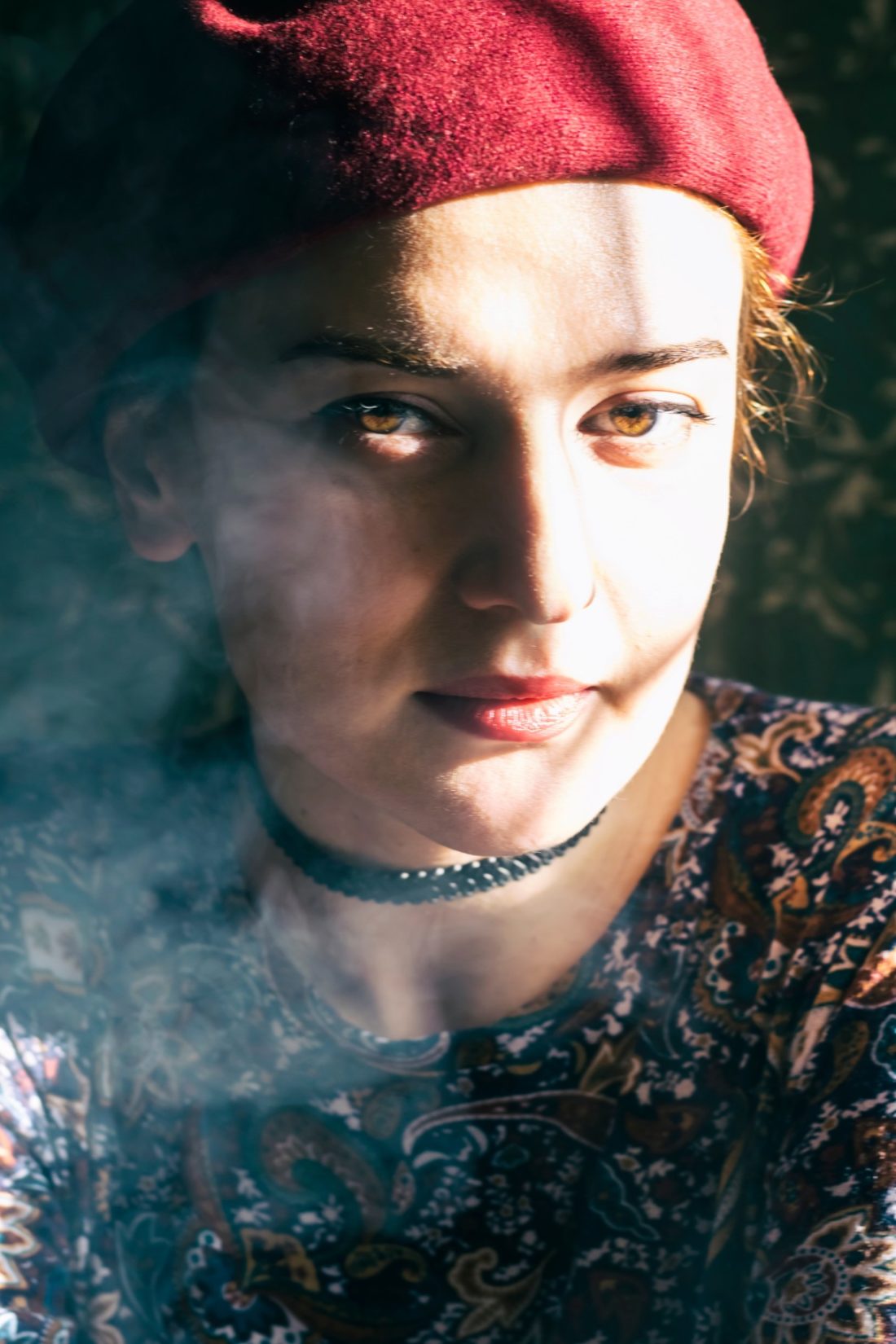Nino Baidauri, 32, Tbilisi
„Growing up, I was surrounded by women; I was actually brought up by women. The people who have influenced the way I matured were all women. These are the individuals, who stand out in my memory: my mother, grandmother, aunt – my second mother who even smelled like mom, the teacher of the Georgian language, and even PJ Harvey with her songs and lyrics printed out in internet cafes.
Directly or indirectly, their life and their vision guided me in taking my path since an early age – the path that has brought me here.
When I was born and was growing up, the male member of the family were either passed away or… just absent. The diseased I knew through the stories about them, and the living – from distance.
My mother was born after my grandfather returned from the war. It was a few years after the Second World War was over. He came back with an emotional trauma and mood disorder. Grandparents were both well advanced into years, when they “accidentally” had my mother. Granny thought she was going through a menopause. When she found out about her pregnancy, grandfather demanded abortion. She went for the procedure, but changed her mind halfway and returned home determined to have the fourth child. Grandfather threatened to murder the newborn like those he had killed in the war.
He was not a bloodthirsty villain, though. I have actually heard many good stories about him. My mother was born and, she in fact ended up being incredibly spoilt by her father. However, objectively speaking, if I look back at the history of my family, I can clearly see my grandmother – a girl married at the age of 17, with three children under her care, and then the fourth child, toiling away, living a hard life, all alone and still almighty. My grandfather – also married very young, a man of many virtues, a failed husband, a failed father and a reason of many problems to his family. I realize that when they tell me about the past, they cherish the authority of the mythical head of the family and still try to gloss over, albeit ineffectively, the truth.
My mother, at a glance, had everything to be happy and successful – she was pretty, smart, kind and easy-going. However, as it is often the case, things didn’t work out the way they were supposed to. Each day of her life has been struggle for survival.
I have known her since her life as a single mom, when she was taking care of both her old sick mother and me. In the late 80s and early 90s, like many other women, she rushed to work in the morning, and, having returned home, she tried to have a one-hour nap because then she had to stay up all night. We usually had electricity, water, and gas only at night. She had to wash and clean up, cook for the next day, take care of my grandmother, read books to me, discuss what we read together, read books on her own. Even a one-hour nap was sometimes impossible because I used to think that a sleeping person was dead and the moment she closed her eyes, I started to bellow. When I went to school, I was in the second shift and she had to get out of her job twice to take me to and from school. Then she had to take me to the music classes and here and there. She did not check my homework, she trusted me and it sort of offended me. I would have preferred to show her my homework, let her know that I was worth relying on. When the situation worsened in the country, her office was closed down. The coupon was the currency then. That was the time when most people could not afford food, let alone living decently. We, too, had to sell everything of value we had at home.
Once we were on an open-air market. When we approached the counter of sausages, she tried to block the sight from me, so that I could not see them (it was my favorite food and she could not afford it). I noticed the counter and on our way home I told her she needn’t have blocked me, I did not like sausage any more. She cried and cried. Since then I have not let her know about my observations on how she had tried to protect me with those little tricks. I acted as if I did not wake up and did not see her crying at night. It gave her pain to know that I noticed all this. Still, she managed to let us have all the basic things we needed. For instance, if the gas was off, and I was threatened to remain without breakfast before going to school, she would burn the wooden clothespins and fry an egg on them. That’s right, she had to go to great lengths.
She started to work in a small café where she had to spend all day from morning until midnight. I was going through adolescence, and I was becoming difficult to handle. For some reason, and I’m ashamed to say, I projected the pain of having no father onto my mother. I remember a dream I saw a few years ago: My father was in the Sameba Cathedral among priests. I could only see his head. He was a priest too and I was telling this dream to mom and crying (in my dream). This dream made me consider something I’d already given some thought before: where, when and why I started to have aversion to church and priests. While we were struggling to survive, my father, who was quite well off, led a pious life. He later claimed he felt guilty to me and tried to assuage his guilt by means of confessions, church repairs, and feasts for clergymen. A word got out from the church he went to, that those priests were highly dependent on his financial contributions. Before their very eyes, my father would call me to the church, meet me for a few minutes and give me 100 GEL, or sometimes even 200 GEL. There was “something” monstrously offensive about it. However, back then I would not say a single reproach about him. He was a supreme human being who I loved distantly, remotely but unconditionally. Father who I always missed and never felt by my side. In hindsight, it is ridiculous but I used to wish my father reproached, scolded, threatened me with punishment, because I would then believe that I had a father too. It could have been enough at times. Now that I have got over it and left all my traumas behind, now that I’ve almost forgotten, and transformed my painful past into useful experience, there is a lingering feeling that I am the child who was loved but not enough to be by her side, to acknowledge her, not to be afraid of her, to melt the ice, not to run away from her and to even scold her occasionally. I mull over this scenario in my mind at different point in time in different relationships, sometimes subconsciously, and I run away each time to avoid the same situation.
Surprisingly, even though we lived in a small town setting and culture, nobody ever reproached my mother for having no husband, or being a single mom or me for having no father. On the contrary, she was well respected. I was spared by my classmates at school, which is generally a very cruel place, where the society can pick on you for no particular reason. Back then, it was just as ruthless, when bullying was not called bulling and nobody discussed it. I have no idea what protected my mother and me, and why the same thing did not protect, say, my aunt, who, due to her extraordinarily good looks and a large number of suitors or partners in her life, was judged severely even by the people dearest to her. However, my aunt was protected by her very nature – she did not take any notice of it and didn’t let it affect her.
Now I am 32 years old. My personal experiences and the experiences of the women around me are women-like, difficult, right and legitimate. 150 women that we have met and recorded within the project “Women from Georgia” teach me and remind me that my body, my mind, my sexuality, life and self-development belongs to me alone. I am and must be responsible for them, their unity and harmony. We need to remember that fight for independence, equal opportunities, personal space, freedom of choice, is the major battle of our life and it always makes sense. This is what we need in order to live in accord with ourselves and the outside world, to live with dignity. It took me many years to name what I believed in and say out loud that I am a feminist and there is no other way for me.”

